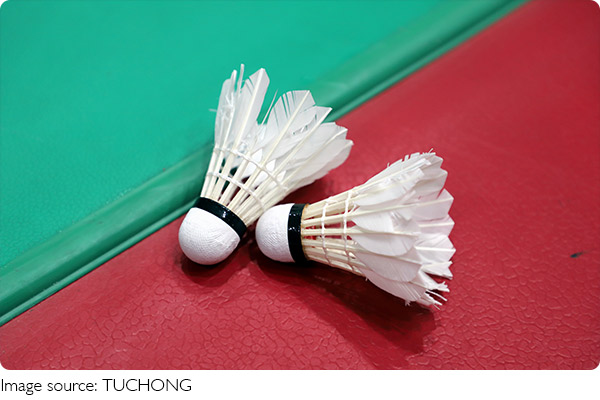Badminton Beginner Basics

Have you ever thought about trying badminton but didn't know where to start?
We're here to help! Badminton is a fun, fast-paced sport that anyone can enjoy, whether young or old. It's perfect for staying active, making friends, and sharpening your reflexes.
In this article, we will walk through everything a beginner needs to know—from basic rules and equipment to simple skills and practice tips. Ready? Let's jump in together!
Understanding the Basics
First, let's talk about what badminton is. It's a game where two or four players hit a shuttlecock back and forth over a net, using lightweight rackets. The goal is to land the shuttlecock on the opponent's side to score points. The game is played indoors or outdoors, but indoor courts give more consistent playing conditions. Knowing the basic rules is key. Each rally starts with a serve, and the shuttle must not touch the ground on your side. We recommend checking out beginner-friendly videos to see how matches flow.
Essential Equipment for Starters
Getting the right equipment makes a big difference. We don't need expensive gear at first—just a decent racket, shuttlecocks, and proper shoes. Choose a racket that feels light and comfortable in your hand. Beginner rackets are usually made of aluminum or carbon fiber and cost less. Shuttlecocks come in feather or nylon types; nylon ones are more durable and great for practice. Wearing sports shoes with good grip and ankle support helps prevent injuries and improves movement on the court.
Basic Techniques to Learn
When starting, focusing on simple techniques is important. Learn how to hold the racket properly with a relaxed grip, which helps control your shots. Practice the basic strokes like the forehand and backhand clear—these are long, high shots used to push your opponent to the back of the court. Serving is another skill to master early, as it begins each rally. Start with a low serve and aim for consistency. Also, learning to move quickly and stay balanced on the court is vital for reaching shots easily.
Practice Tips for Beginners
We all know practice makes perfect, but how should beginners practice? Start by warming up with light jogging and stretching to avoid injuries. Spend time practicing your serves and basic shots against a wall or with a partner. Simple drills like hitting the shuttlecock back and forth slowly help build control. It's also useful to watch your favorite players or instructional videos to pick up tips. Most importantly, keep sessions short and fun—around 30 to 45 minutes is enough when you're just starting.
Common Challenges and How to Overcome Them
We all face hurdles when learning something new, and badminton is no different. Beginners often struggle with timing, footwork, or getting the shuttlecock over the net. Don't get discouraged! To improve timing, practice watching the shuttle closely and swinging smoothly. For footwork, try small quick steps instead of big jumps, which keep you balanced. Remember, it's normal to make mistakes. The key is to learn from them and keep trying. Joining a local club or group can also boost motivation through social support.

Health Benefits and Social Joy
Why should we make badminton a part of our routine? It's a full-body workout that improves cardiovascular health, coordination, and flexibility. Experts note that regular badminton sessions can burn calories and reduce stress. Beyond health, playing badminton connects us with others. Whether it's friendly matches or casual gatherings, the sport creates community and shared fun. Starting badminton is not only good for the body but also for the mind and overall well-being.
Taking the Next Step
Once you feel comfortable with the basics, you might want to explore advanced skills like smashes, drops, and strategic positioning. Many beginners find joining clubs or attending classes helpful to get personalized coaching and meet fellow players. Competitions, even at amateur levels, provide exciting challenges and goals to work toward. Whatever your pace, the important part is to keep enjoying the game and celebrating small progress.
-
 Stiff Pain Strikes Early?Aching Shoulders? Morning Stiffness?! Polymyalgia Rheumatica Could Be Creeping In Without Warning!
Stiff Pain Strikes Early?Aching Shoulders? Morning Stiffness?! Polymyalgia Rheumatica Could Be Creeping In Without Warning! -
 Blood Markers of Stress!Anxious? Sleepless? Wired?! Hidden Blood Clues Could Reveal If Stress Is Silently Wrecking Your Body!
Blood Markers of Stress!Anxious? Sleepless? Wired?! Hidden Blood Clues Could Reveal If Stress Is Silently Wrecking Your Body! -
 Genetics Vs Lifestyle?Born With It? Or Built It?! The Truth Behind Whether DNA Or Daily Choices Shape Your Health Most!
Genetics Vs Lifestyle?Born With It? Or Built It?! The Truth Behind Whether DNA Or Daily Choices Shape Your Health Most!